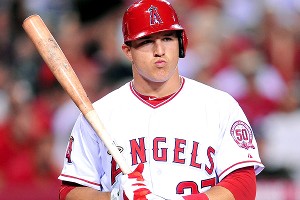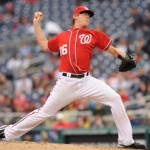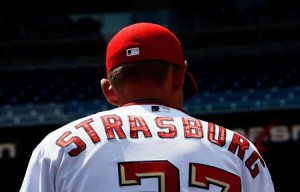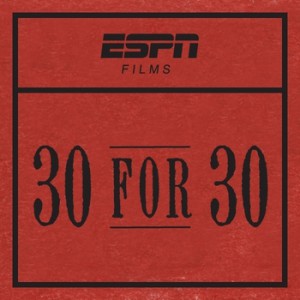Hi there. Its time to write about the “silly season” of baseball. Its my annual awards predictor piece.
(Important note: despite publishing this after the post-season … like the voters, I write the entirety of this at the end of September. This is not skewed or influenced by anything that happened in the post-season. Which is pretty important, because likely NL MVP Cody Bellinger was embarrassed in the NLDS while his competitor Anthony Rendon really out-classed him, both in that series and throughout the post-season. Same thing with Cole versus Verlander for the NL Cy Young; after the post-season, i’m sure many would want to reconsider their votes).
Side Note: I was listening to a Ringer podcast and Bill Simmons had a very simple, elegant solution the long running debate about what the “Most Valuable Player” means. His point about the MVP is the same as my point: how can you be the “most valuable”player on a team that only wins 75 games? You were so valuable that you prevented that team from only winning 65 games? Instead he thinks we should add an “Most Outstanding Performance” award in each league to identify exactly what it says; the best individual performance irrespective of the player’s impact on the playoff race. Many times it may very well be the same player. But a lot of the time it won’t be. The “MOP” can be heavily driven by WAR totals, perhaps looking at all three iterations of it.
So, would MVP and MOP differ over the past few years? Lets look. Here’s a list of MVP winners historically, and then links to b-r’s WAR, fangraphs WAR and BP’s WAR.
- 2018: MVPs were Christian Yelich and Mookie Betts. MOP candidates: Still Betts in the AL, Jacob deGrom in the NL (who won the Cy Young fwiw)
- 2017: MVPs were Giancarlo Stanton and Jose Altuve. MOP candidates: Aaron Judge or Corey Kluber in the AL, Max Scherzer in the NL (both pitchers mentioned won the Cy Young)
- 2016: MVPs were Kris Bryant and Mike Trout. MOP candidates? Probably Trout and Bryant still, though Scherzer has a case (and he won the Cy Young here too)
- 2015: MVPs were Bryce Harper and Josh Donaldson. MOP candidates: Harper and Trout. Harper was head and shoulders above anyone this season, as was Trout (who lost b/c his team was bad).
- 2014: MVPs were Clayton Kershaw and Mike Trout: MOP candidates? Kluber and Kershaw (both were cy Young winners).
So, of the last 10 MVPs, i’d say that half of them were not also the “MOP” that year. That’s half the MVPs, even given more modern thinking in voting for the award.
anyway, to the predictions:
- AL MVP: Alex Bregman
- NL MVP: Cody Bellinger
- AL Cy Young: Gerrit Cole
- NL Cy Young: Jacob deGrom
- AL Rookie: Yordan Alvarez
- NL Rookie: Pete Alonso
- AL Manager: Rocco Baldelli, Minnesota
- NL Manager: Mike Shildt, St. Louis
Discussion/Reasoning
- AL MVP: Even though Trout plays for a crummy team, and even though he missed most of Sept with injury, I think he may win. But Houston’s clean-up hitter Alex Bregman provides a pretty compelling case from a value perspective. If two players have the same WAR but one plays for a 107 win team and the other’s team didn’t win 70 … i think we know who should win. I like Betts and Matt Chapman to get votes here too. Not sure which Yankee gets the “best player on the playoff team” votes for them. It wouldn’t completely shock me if Trout won in a close vote, but I’ll go Bregman for now.
- NL MVP: It was probably a neck-and-neck battle between Bellinger and Christian Yelich, who had exploded in the 2nd half to “catch” Bellinger’s monstrous first half. But a season-ending knee injury costs Yelich the bulk of September, likely ending his chances. I think it goes Bellinger 1, Yelich 2, and then maybe the Nats Anthony Rendon getting some down-ballot love. Also look for Ronald Acuna to get votes, as the “best player on the playoff team” for Atlanta.
- AL Cy Young: Cole going away, with his teammate Justin Verlander 2nd. What a late-career arc for Verlander. I initially thought Verlander might get this with some sympathy votes, but Cole’s narrative was so dominant (as were his stats) and his 2nd half so incredible that I find it hard to believe he won’t take the prize.
- NL Cy Young. This was absolutely Hyung Jin Ryu‘s award to lose for most of the season. Then it looked like Scherzer’s to lose until he got hurt … which has opened the door for DeGrom to repeat. I think Strasburg‘s ERA will look too high as compared to deGrom’s despite his career year.
- AL Rookie: Dating back to perhaps mid last season, when it became clear that Toronto was manipulating his service time, this was Vladimir Guerrero Jr’s award to lose. And, despite all the hype, he probably has lost it thanks to a pretty medicore first half. it took him months to get going, eventually heating up in August to post nearly a 1,000 OPS for month. Might be too little too late to catch Houston’s slugger Alvarez, who has top-of-the-leaderboard wRC figures.
- NL Rookie: Alonso hit 53 homers; how can you not give him the ROY? Understood there’s other qualified names, but Alonso’s accomplishments make him pretty famous, and makes him a shoe-in for this award. No point in mentioning 2nd place here; this should be unanimous.
- AL Manager: Baldelli wins the award for “most surprising AL team” to get the Mgr. Everyone knew the Yankees and Astros would be good. Maybe Oakland’s manager (Bob Melvin) or Tampa’s manager (Kevin Cash) gets votes or wins outright. Maybe Yankees manager (Aaron Boone) gets some credit for navigating the myriad of injuries he has to face.
- NL Manager: Shildt wins here out of apathy. The NL race was mostly decided in the West before the season started, so hard to give it to Dave Roberts. We knew Atlanta could repeat, so hard to make an argument for Brian Snitker. the NL race was more about teams flailing that should have been better (Chicago Cubs, Washington Nationals, maybe even Philadelphia too). Maybe i’m wrong and the press sees the recovery job the Nats did this year and gives it to Martinez.
Finalists announced on 11/5/19; i didn’t miss any of my top candidates, but was kind of surprised by some of the finalists.
Actual Award Results added as they were awarded (updated post-publishing). Voting results on baseball-reference.com for 2019 BBWAA awards.
- AL MVP: Mike Trout in a close one over Bregman, 17-13 in 1st place votes
- NL MVP: Bellinger in a tight one as well.
- AL Cy Young: Justin Verlander 17-13 in 1st place votes over Gerrit Cole.
- NL Cy Young: deGrom nearly unanimously, with 29/30 1st place votes. Scherzer 3rd, Strasburg 5th, Corbin 11th.
- AL Rookie: Alvarez unanimously. John Means 2nd, Brandon Lowe third, Eloy Jimenez fourth, Cavan Biggio fifth. Guerrero finished 7th, getting a handful of 3rd place votes.
- NL Rookie: Alonso with 29/30 votes. Mike Soroka 2nd, Fernando Tatis Jr. 3rd. Victor Robles finished 6th with one 3rd place vote.
- AL Manager: Baldelli, edging out Boone.
- NL Manager: Schildt barely over Counsell.
My prediction results: 6 for 8. I switched out original guesses that would have had me 8 for 8 by over-thinking things. I do like that Trout was not penalized for his performance, and kind of remained surprised Bregman didn’t win in the end.
Links to other awards that I didn’t predict this year (again, updated post-publishing as they’re announced)
- Roberto Clemente Award: Nominees (one for each team). Carlos Carrasco the overall winner.
- Hank Aaron Award: Mike Trout, Christian Yelich winners for 2019. Yelich repeats, while Trout wins his 2nd career.
- Gold Gloves: really a good job picking GGs this year; lots are exactly in line with advanced metrics. We’ll discuss this in a separate, annual post.
- Relievers of the Year: Aroldis Chapman, Josh Hader selected for 2019.
- Fielding Bible; mostly in line with the GGs.
- Silver Sluggers: Anthony Rendon a winner!
- Wilson Defensive Player of the Year: no Nats this year.
- Platinum Glove winners: repeat winners for Matt Chapman and Nolan Arenado
- Sporting News MLB Executive of the Year: Erik Neander with Tampa Bay wins Exec of the year. Brian Cashman 2nd, Billy Beane and the Twins’ Derek Falvey tied for third place.
- BA Executive of the Year: Mike Rizzo of the Nationals.
- Comeback Players of the Year: Carlos Carrasco and Josh Donaldson. Hard to argue with Carrasco, who overcame a Leukemia diagnosis.
- Edgar Martinez DH of the Year: Nelson Cruz for 2019
- J.G. Taylor Spink Reporter of the year (named at Winter Meetings): Nick Cardafo named for 2019.
- Ford C. Frick award Broadcaster of the year (named at Winter Meetings): Hawk Harrelson named for 2019
- All-MLB teams (first named in 2019): 1st team includes Rendon, Strasburg, Scherzer. 2nd team includes Juan Soto
- Tony Conigliaro Award: Rich Hill
- Warren Spahn Award for best MLB left handed pitcher: Patrick Corbin, 2020 winner!
Other links to awards worth noting




